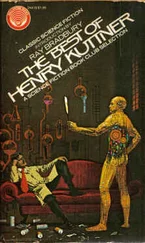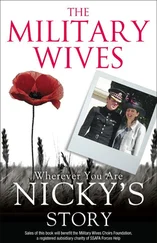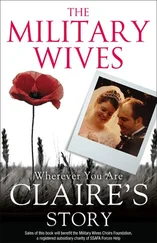The Wives of Henry Oades
Johanna Moran
A NOVEL
For my husband, John Moran And for my parents, June Ray and John Campbell Chommie
Tena, ki te riro ko ta te teina ki mua whanau mai ai, hei muri ko ta te tuakana whanau ai, na, he iwi kino taua iwi hou, ina tae mai ki tenei Motu.
But, if it happens that the child of the younger is born first, and of the elder afterward, then the newcomers will be an evil people, when they arrive in this Land.
—A Maori premonition of disorder
Cover Page
Title Page The Wives of Henry Oades Johanna Moran A NOVEL
Dedication For my husband, John Moran And for my parents, June Ray and John Campbell Chommie
Epigraph Tena, ki te riro ko ta te teina ki mua whanau mai ai, hei muri ko ta te tuakana whanau ai, na, he iwi kino taua iwi hou, ina tae mai ki tenei Motu. But, if it happens that the child of the younger is born first, and of the elder afterward, then the newcomers will be an evil people, when they arrive in this Land. —A Maori premonition of disorder
Part One PART ONE
The Newcomers 1890
Kindness Itself
Wellington February, 1891
Wellington March, 1892
Taken
Inconceivable
Alone
She Speaks to Me Day and Night
No Worse than Here
A Deal
Berkeley
A Proposal
Nancy
Together Always
The Main Concern
Part Two
North Island 1895
North Island 1897
North Island Late 1898
Wellington
Wellington Hospital
March 1899
Hello, Henry
Part Three
A Fly in the Amber
A Start
Calling the Same Man Husband
Beginning Today
There Was an Old Woman
A Trip to the Quack
At the Palace Hotel
Pieces
Dickering
A Question of Divorce
All She Knew for Certain
A Christmas Duck
A True Wife
Elsewhere
Something Demonic
Hello, Little Bastard
The Party Most Principally Injured
The Wives of Henry Oades
A Queer Life
At Home
Epilogue
Acknowledgments
About the Author
Copyright
About the Publisher

A COMMON BAT on the other side of the world elects to sink its rabid fangs, and one’s cozy existence is finished.
Margaret Oades knew her husband was up to something the moment he came through the door with a bottle of wine. It was late. The children had gone up hours ago. “What’s the occasion?” she asked, laying out a plain supper of shirred eggs and lardy cakes.
Henry kissed the nape of her neck, giving her a shiver. “I’ve an announcement,” he said.
Margaret expected him to say he’d found a collie for their son. John, nearly eight now—her big boy, her pride—had been wheedling without letup for weeks. She took down two goblets, hoping the dog was an old one and not some frisky crocus lover.
“A senior passed in New Zealand,” he said instead. “Of a bat bite, poor bloke. I’m to complete his stint. We’re due as soon as possible. You’ll want to prepare.”
Margaret set the goblets aside. “Henry.”
“Two years, sweetheart.” He’d proposed marriage with the same pleading look. “The time shall sail by, you’ll see. It’s a grand opportunity, a flying leap forward. I could hardly say no thanks.”
Three weeks later, boarding the steamer tender that was to take them down the Thames and bring them up alongside the Lady Ophelia, Margaret could not recall what she’d said next. Nothing perhaps, stunned as she’d been.
On board the crowded tender, a child each by the hand, Henry and Margaret jockeyed for position at the rail. Already the narrow boat was moving, spewing gray smoke. Margaret waved to her parents on the quay below, flapping her hankie, straining to pick them out through tears and drizzle. She’d not told them she was expecting again, thinking it too soon. She regretted now not making an exception, cutting the sadness with a bit of happy news. Henry wrapped an arm about her, kissing her brow, his beard grazing her cheek. He’d been made a ship’s constable, issued a red-lettered guernsey too small for him. The bulky knit pulled across his broad shoulders and chest. Pale knobby wrists jutted between glove and cuff. He was to be paid seven pounds for patrolling the single-women’s section, which appealed to the latent cop in him. He’d had other aspirations before settling upon an accountant’s stool. There was a time when he thought himself bound for the opera stage, but that was years ago, before he knew what it took.
He kissed her again. “It’s not forever.”
“The new baby shall be walking,” she said, rising up on her toes, waving wide arcs.
Behind her a woman said, “They cannot see us anymore. We’re too far off.”
Margaret turned to face the lady in the gaudy checked cape, a pixie of a woman with a sprinkle of reddish brown freckles to match her hair. Earlier, Margaret and her father had been standing on the wharf, monitoring the loading of their trunks. The cheeky woman sashayed up like a long-lost relation, saying, “Your wife has such a serious look about her, sir.”
“I beg your pardon,” Margaret had said. “You’re addressing my father. ”
“You don’t remember me,” the woman said now, fingering a dangling ear bob.
“I do, madam.” How could she forget?
“Where’s your lovely da?”
“My father isn’t sailing,” said Margaret. “He was there to see us off.”
“A pity,” she said, turning to Henry, smiling, dimpling. “I’m Mrs. Martha Randolph, Constable. One of your charges. Who might the wee lady and gentleman be?”
Henry introduced the children, clapping a proud hand to John’s shoulder, prying six-year-old Josephine from Margaret’s leg. Margaret turned back to the watery haze that was her parents, spreading her feet for balance, her pretty going-away shoes pinching. She’d been told the river was calm. “Smooth as glass,” her favorite uncle had claimed.
“Your children are charming, Mr. Oades,” said Mrs. Randolph. Meaning, presumably, Your wife is utterly lacking. The woman sauntered off not holding the rail, flaunting her superior sea legs, a cockiness won by being on one’s own, no doubt.
London was behind them now, the hawkers and filth, the soot-belching chimney pots, the piles of manure in the streets, the raw sewage in the black water. Margaret had visited once before. It’s good to get to know other things and places, Henry had said on the train. She’d agreed aloud, but not in her heart. At thirty-two she was a contented homebody, John and Josephine’s mum, Henry’s wife. It was enough, more than enough. She knew all she needed to know about other things and places.
The tender rounded a rocky promontory. A row of small cottages went by, lighted from within, the mothers in them tucked away, minding their worlds, starting their suppers.
Henry spoke close to her ear, his breath warm as toast. “Think of the grand stories we’ll tell in our sapless dotage.”
She laughed a little. “Assuming we’ve the sap to see us to dotage.”
He laughed too, releasing pent-up excitement. “That’s my girl.” He was as keen to go as she was not. He hoisted John and put a fist, a make-believe telescope, to John’s eye. “Now watch for our ship, boy. She’ll come into view any moment now.”
Читать дальше













